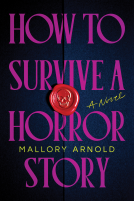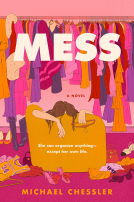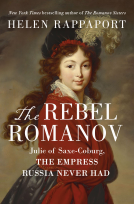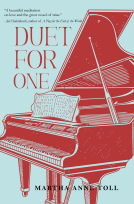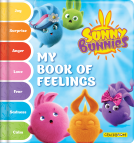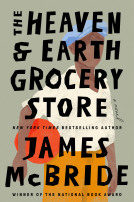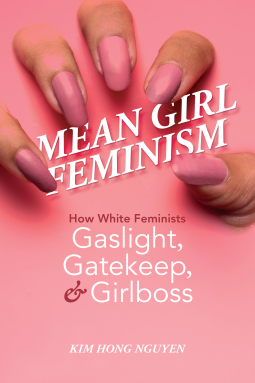
Mean Girl Feminism
How White Feminists Gaslight, Gatekeep, and Girlboss
by Kim Hong Nguyen
This title was previously available on NetGalley and is now archived.
Send NetGalley books directly to your Kindle or Kindle app
1
To read on a Kindle or Kindle app, please add kindle@netgalley.com as an approved email address to receive files in your Amazon account. Click here for step-by-step instructions.
2
Also find your Kindle email address within your Amazon account, and enter it here.
Pub Date Jan 09 2024 | Archive Date Jun 13 2024
Talking about this book? Use #MeanGirlFeminism #NetGalley. More hashtag tips!
Description
Mean girl feminism encourages girls and women to be sassy, sarcastic, and ironic as feminist performance. Yet it coopts its affect, form, and content from racial oppression and protest while aiming meanness toward people in marginalized groups.
Kim Hong Nguyen’s feminist media study examines four types of white mean girl feminism prominent in North American popular culture: the bitch, the mean girl, the power couple, and the global mother. White feminists mime the anger, disempowerment, and resistance felt by people of color and other marginalized groups. Their performance allows them to pursue and claim a special place within established power structures, present as intellectually superior, substitute nonpolitical playacting for a politics of solidarity and community, and position themselves as better, more enlightened masters than patriarchy. But, as Nguyen shows, the racialized meanness found across pop culture opens possibilities for building an intersectional feminist politics that rejects performative civility in favor of turning anger into liberation.
Advance Praise
“This is an important book that is beautifully and powerfully written and deeply original while offering productive interventions into the study of mean girl culture and its larger impact on conversations on feminism. Nguyen does an excellent job showing the systemic and historical ways white supremacy and patriarchy enact themselves on white women’s feminist practices and creation of mean girl feminism. A vital contribution.”--Kishonna L. Gray, author of Intersectional Tech: Black Users in Digital Gaming
Available Editions
| EDITION | Other Format |
| ISBN | 9780252087684 |
| PRICE | $22.95 (USD) |
| PAGES | 160 |
Links
Available on NetGalley
Featured Reviews
I had noticed that there has been a shift lately in how people interact and present online so it was really interesting to see the different dynamic in this and how feminism has changed with the Mean Girl mentality.
 Olivia K, Reviewer
Olivia K, Reviewer
An informative read for every white woman who is a feminist!!!!! It covers multiple topics or themes with real world examples. Very well-written!
 Emily D, Reviewer
Emily D, Reviewer
As a white woman who identifies as a feminist, this felt like a really important book for me to sit down with. It left a lasting impact on my thoughts regarding mainstream feminism and I will definitely be sharing with others in this demographic!
 Librarian 1253864
Librarian 1253864
Such a great book for the modern women on feminism and how girls treat and socialize with o e another in society. I found it to be such an engrossing read snd I look forward to sharing more thoughts snd discussion points soon.
Thanks to NetGalley and University of Illinois Press for this ARC.
Some professors reference classic books to illustrate human behavior. Instead of using qualitative or quantitative methods to draw her conclusions, Kim Hong Nguyen uses television shows and former presidents’ wives to illustrate hers.
Nguyen’s feminist media study identifies four types of mean girl feminism in North America. She says “If …feminism is a struggle rather than ‘a lifestyle [or] a ready-made identity or role’- then naming power’s strategies and the people and subject positions that may be performing those strategies is part of the feminist struggle.”
Nguyen deconstructs mean girl feminism in order to move beyond the politics and cliques it creates. She hopes that feminism eventually will be decolonized and lead to a feminism that will benefit the subaltern and eventually lead to mean girl feminism’s dissolution because it will no longer be relevant.
After the first and second wave of feminism, there is post-feminism. This study is an attempt to unite all eras of feminism into a world where women can treat each other as equals without the intrusion of class and color or even religion.
I loved how this book broke down what it means to be “mean” in todays climate as a white woman and how this affects black and brown people (especially women) in the process. I especially loved the ways it intersected with politics and motherhood.
The fourth chapter’s section on Laura Bush was incredible and I found myself highlighting long sections at a time discussing the intersection of The First Lady as a figurehead that allows discourse to be shifted towards horrifying routes without the accountability of an actual public and political figure. Below are two of my favorite points from this section.
“[…] the First Lady can make arguments without providing the verifiable data that founds her fear, but yet her fear can in turn “become a generative principle of formation for rule.”[65]. Any factual error made by the First Lady is more or less pardonable because she is unelected, outside of party lines, and not privy to discussions on policy-making.”
“Bush mobilized global motherhood not only through her own performativity but also through her rhetoric of liberal war’s possibility in producing Afghan women as good mothers of and for their own communities.”
very insightful approach to this current trend of mostly white feminists, as a latina who lives in latin america it made for an interesting read, specifically how it touched on how this toxic positive feminism affects poc women
thank you to net galley for the e-Arc in exchange of my honest review
"Mean Girl Feminism," which is a concept that encourages girls and women to adopt a sassy, sarcastic, and ironic demeanor as a form of feminist performance. The author, Kim Hong Nguyen, argues that this form of feminism often co-opts its style and substance from racialized oppression and protest, while directing meanness toward people in marginalized groups.
Nguyen delves into four types of white mean girl feminism that are prominent in North American popular culture:
The Bitch
The Mean Girl
The Power Couple
The Global Mother
According to Nguyen, white feminists often mimic the anger and resistance people of color and other marginalized groups feel. This allows them to claim a special place within established power structures and present themselves as intellectually superior. However, Nguyen argues that the racialized meanness found across pop culture can open possibilities for building more intersectional feminist politics. I want to read more on the topic and continue educating myself.
Thank you to Net Galley and the University of Illinois Press for the review copy.
 Brittany M, Educator
Brittany M, Educator
It's likely that I won't be using this in class soon as it is a little involved for my current age group, but I will 100% be buying a physical copy for my collection and likely using it in the future. It is amazing and interesting, very shrewd and looks at things with an unflinching eye. It is definitely an honest and relevant look at the need for intersectional feminism to be at the forefront of discussions of gender.
If you are white please please read this, it is so beneficial. I got very sick of, especially white women (I am biracial and mexican), speaking over my opinions or feeling entitled to discount me when it came to feminism. ESPECIALLY online.
An incredible addition to the intersectional feminist canon, Nguyen presents a critique of the current modes and methods of white feminism through the principles of the mean girl. This text, though dense, is well worth the read.
I was challenged by this book to closely observe and discern some mannerisms that made me understand the changes in feminism and I love how the author not only pinpoints certain phrases, tactics or sayings but more of how she unpacks them to show the meanness in them and who it benefits under the guise of 'girl power,' and 'feminism.'
Thanks Netgalley for the eARC.
Thanks a lot to NetGalley and University of Illinois Press for approving this ARC in exchange for an honest review!
“Mean Girl Feminism: How White Feminists Gaslight, Gatekeep, and Girlboss” by Kim Hong Nguyen is an insightful exploration of certain tropes present in mainstream feminism that ultimately, whether in a conscious way or not, serve to maintain white privilege.
These types of white mean girl feminism come from North American pop culture, and either borrow from or are a counter to BIPOC experiences and social justice movements. But as the author analyses, they’re merely performative in a bid to achieve individual progress in tune with capitalism, rather than collective, intersectional change.
Each chapter sets out to shed light into these tropes and their function of gaslighting, gatekeeping and/or girlbossing through feminism:
👉 Bitch Feminism: Blackfaced girlboss in feminist performative/performativity politics
👉 Mean Girl Feminism: Gatekeeping as illegible rage
👉 Power Couple Feminism: Gaslighting and re-empowering heteronormative aggression
👉 Global Mother Feminism: Gatekeeping biopower and sovereignty
Although relatively short, this book packs a punch and was often challenging to read. That is, despite its ironically girlboss-pink cover and use of pop culture examples, this is not a light and accessible text; rather, it was very much academic. If you’re the type of person to balk at multi-word concepts like “imperialist white supremacist capitalist cis-heteropatriarchy”, or if you don’t care for an analysis centered exclusively around North America, then you might want to give this one a pass…
But I would encourage you to give it a try nonetheless.
I have so much to say that I’m overwhelmed to even try, but, even with some criticism (I think the book could have been made more approachable), I found so much value and prompts for self-reflection that my digital copy is full of underlined passages. I think this is an unmissable volume for anyone who considers themselves a feminist committed with genuine social justice and open to continuous learning. At points, the text intentionally comes off as anti-feminist, even, which was challenging/aggravating. But this is a provocation to engage with your own beliefs and ask: what is your feminism seeking? Is it truly in pursuit of equality for all? Are you prepared to reckon with the fact that equality does not mean we should all be millionaires? Is your intersectionality performative? Is your meanness moving you to the anger needed for meaningful action? Or is it actually just reinforcing white supremacy?
Honestly, I really want a physical copy so that I can constantly refer back to it! I’m so glad I had the chance to read an early copy, and I hope lots of people give it a shot.
 Reviewer 1201616
Reviewer 1201616
As soon as I read the synopsis for this book I knew I had to read it. I've thoroughly been enjoying a lot more non-fiction in the socialogy space, and the ideas presented within the blurb of MEAN GIRL FEMINISM is something I've personally been noticing a lot more of in 2023.
MGF reads like an extended academic paper, but I found it easy enough to follow on with the themes Nguygen talks about, and the way she breaks down specific topics. The more conversation we have about intersectionality in feminism, the better. The book isn't designed to give you the answer, but rather make you think more critically about how you engage your feminism - something we can all do a little better.
Thank you to Netgalley and University of Illinois Press for my review copy.
The actual rating for Mean Girl Feminism is 2.5 stars but I rounded up to 3 stars.
First — I'd like to preface that I think the actual content and discussion of white feminism employing 'mean girl' tactics is an incredibly important one and Kim Hong Nguyen makes compelling arguments with a multitude of examples.
I also think that the description didn't quite give way to how much of an academic research novel this was vs. more of an analytical nonfiction, if that makes sense. There's nothing wrong with it clearly stemming from an academic research paper, but it threw me off when I first started reading. And maybe that's on me for not taking the publisher being University of Illinois Press as an understanding—I'll take that.
But beyond, I did struggle with aspects of it. As someone who has written many a research paper, I understood and appreciated the structure of Mean Girl Feminism and found the break-down of the archetypes fascinating and apt for our current culture. I also felt like Hong Nguyen's cited sources and references that backed her arguments were compelling. But, there were times where I felt like the language was purposefully dense and complicated—especially in the first two chapters, I felt like I had to reread and reread not just paragraphs, but even just sentences.
I also felt like her actual analysis could have been stronger. There were points where Hong Nguyen would explain her example, link it to the previous research, have a little bit of expansion and move on. There was definitely room for her to expand upon her argument beyond just the source/example and I was itching for it. Her conclusion to me, funny enough, was the strongest to me and I enjoyed her shorter analysis, though she listed several examples of her argument of white women deploying mean girl feminism that weren't previous touched on—which was disappointing as the brief analysis of these examples were so strong.
Overall, I appreciated the message and discussion from Mean Girl Feminism and I think that there's a lot to digest from it. However, I think in terms of the analysis itself, there were opportunities to expand on Hong Nguyen's own voice and argument while making it a little more digestible to other readers.
"Mean Girl Feminism" is a work of art that I really wish had existed when I was in college. I would have loved to dissect every chapter with classmates as we discussed all of the intricacies that are involved with the word "feminism."
Nguyen dives in deep, providing timely real-world examples to express what is meant by "mean girl feminism." I highly recommend this book to any and everyone!
Thanks to NetGalley and the publisher for a digital copy of this book in exchange for my honest review.
*3.5
Mean Girl Feminism is a book I liked the idea of but the execution was a bit drier than expected. There were times (especially within the first couple chapters) where I felt like I needed to reread sections multiple times. I found the section about conservative feminism/Laura Bush/the war on terror the most fascinating.
 Reviewer 1281795
Reviewer 1281795
An interesting analysis of how white feminism can be misguided in what it is promoting and standing for. A little technical at times, but still thought provoking
I am so thankful to the University of Illinois Press, Kim Hong Nguyen, and Netgalley for granting me advanced digital access to Mean Girl Feminism: How White Feminists Gaslight, Gatekeep, and Girlboss before this psychologically interpreted exposé hits shelves on January 9, 2024.
From comparisons in media and pop culture, our author reveals how white women have been putting on a show in the name of being accepted by a group they don’t even want to be a part of, because they are all talk and a lot of bite, as their performativity and meanness projects a clearer message than their feminism.
From toxic patriarchal-conveying power couples such as Hillary and Bill, to Hillary never standing up for herself and women every way to keep face to fictional examples such as Chuck and Blair and Dan and Serena from Gossip Girl, this book has everything to convince you that a majority of white women suck and I hate to be associated with them.


